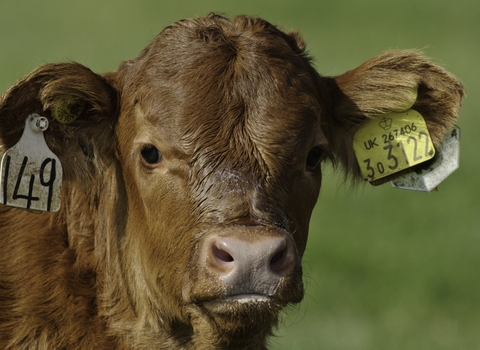By 2030 we must see nature recovering, wildlife returning and ecosystems restored. The General Election on 4 July 2024 will saw us vote in the Government and parliament that will be largely responsible for steering us towards a wilder 2030. The Trust has identified five key policy priorities that must be addressed to halt and reverse species decline and ensure a positive future for all. Here we take a closer look at nature-friendly farming
How we farm is critical to our food security and to achieving the UK’s legally binding targets for nature and climate. Over 69% of the UK is farmed, producing over 50% of the food we eat. How this land is managed has significant implications for nature, the climate, air and water quality, and in turn the health of the natural processes, which underpin our long-term food security.
It is counter-productive to pit food against nature. The comprehensive UK Food Security Report concluded that “Food security rests ultimately not on maximising domestic production… but on making best use of land types”. Around 40% of farms will need to be managed in more nature-conscious ways to halt the loss of species by 2030.
More nature friendly farming can be good for people, the planet, and the rural economy, creating new employment opportunities, from agroforestry and natural capital advice to new local marketing.
Nature and successful farming can go hand in hand. Over the past eight years, The Lockerley Estate in East Tytherley near Stockbridge has been leading the way. It has transformed from a conventional arable farming system to a regenerative one, adopting techniques such as direct drilling to minimise soil damage, and drastically cutting back on fuel use; the estate has also set aside 28 hectares for wildlife through rewilding and, low intensity grazing, as well as creating wildflower meadows and restoring wood pasture.
What needs to change?
To deliver a resilient food system, we need ambitious agricultural policies and funding to help support and reward farmers and land managers who are helping to reverse the fortunes of wildlife and our shared natural environment, by farming in a more sustainable way.
-
Increase the budget for wildlife-friendly farming - To reverse the decline of nature by 2030, and secure the UK’s long term food security, the budget to support wildlife-friendly farming should be increased to at least £4.4 billion a year and be linked to Local Nature Recovery Strategy Priorities. This will ensure the agricultural transition is fair to farmers and better for wildlife, while providing healthier and more affordable food for all members of society.
-
Halve pesticide use - The catastrophic decline of insects is having a huge effect on the rest of the natural world. Insects are the canaries in the coal mine – their collapse is an alarm bell that must not be ignored. To save the future of insects – and all life that depends on them – the next UK Government must halve pesticide use by 2030 and maintain all bans on of bee-killing and human-health-harming neonicotinoids once and for all.
-
Reduce nitrate pollution and agrochemical use – If we are to tackle water pollution, and deliver the food we need, we need to champion smart, sustainable ways to reduce the reliance on chemicals. We need policy support for buffer strips along waterways, integrated natural pest management techniques, regenerative cropping methods and regional nutrient neutrality credit schemes. Innovative, sustainable solutions – championed through policy – can not only enhance biodiversity but also improve soil health and water quality, ensuring a resilient agricultural system for future generations.
-
Help farmers reduce emissions and adapt to climate change - The extreme heat, wildfires, and droughts in 2022 provided a taste of the reality to come. Farmers need much more support to adapt to climate change and to help meet the UK’s climate goals, as well as reducing their emissions. Adaptation and mitigation need to be embedded in farm payment schemes; farmers need better information about how farming with nature can increase their resilience; and a land use strategy is needed that considers how food production needs to change in the UK in response to climate change.

